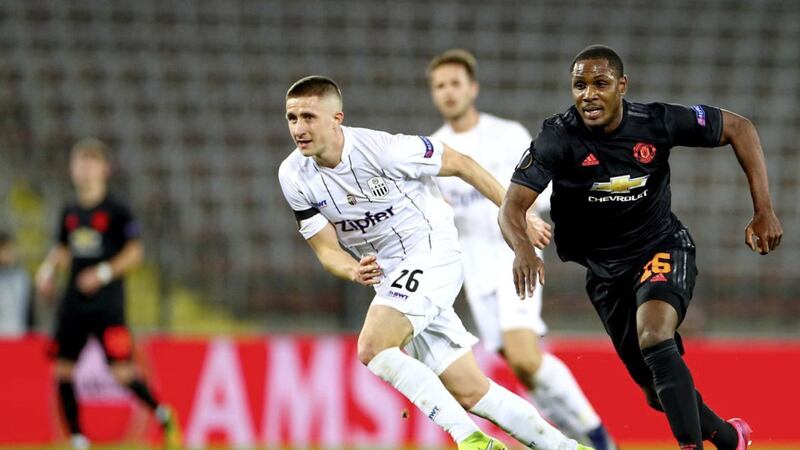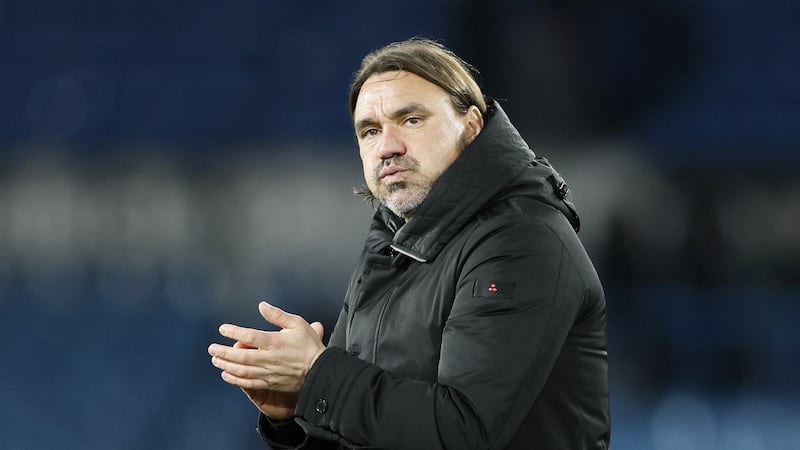ODION Ighalo, for those who don’t maybe know him from Adam, is a recent high-profile on-loan signing who Manchester United secured in the final hours of this year’s January transfer window.
He is a striker and has been plying his trade in China, not because it is the best league in the world, but probably the best paying league.
I doubt anyone serious about their football would choose it as a ‘must’, but the Chinese Super League can represent one last big payday of a professional soccer career.
A huge monthly salary and massive signing on fees have been common-place.
This week, United announced that they have come to an agreement with Ighalo and his representatives to retain his services for the remainder of the season.
Like all these commercial entities now, their public relations department publicised how important Ighalo is to the ‘squad’ and the impact he has made since his arrival.
His statistics? Four goals in three games. Two of these four goals were in an FA Cup fifth round tie against Derby County.
I thought to myself if this is all it takes to impress a manager, a club or a fan-base?
This is professional sport folks, where every sprint can be counted, your speed is measured and your touches counted. You can make apples look like oranges in this statistically obsessed world.
I was thinking of our amateur GAA footballers and hurlers against this context.
Maybe our expectations as spectators at both club and county level exceed the normal.
Ighalo is a case in point and his situation is symptomatic of what good marketing and PR can achieve.
Given this, are we (as supporters or ‘stakeholders’) wanting too much? Perhaps I need to look internally when answering my own question.
Did I put too much pressure on myself when I was playing at club and county level?
Why did I feel the need to participate at such an intense level all the time with various managers, coaches and even supporters?
We all acknowledge the fact that with the levels of preparation far exceeding anything in the past in terms of our game, the professional approach at inter-county level is now on par with that of professional soccer and rugby and at the top level of our club games.
I know because I was there. Certainly this ramped up during my last few years anyway.
Rehabilitation, training loads and recovery is being plagiarised from the play-books of professional sport.
Professional coaches are being lured to the GAA – unimaginable at one time.
The costs have spiralled. We see that in the AGMs of most GAA counties and clubs across the country.
You feel these costs are not sustainable, but a year drifts by without much changing at all levels in the Association. In fact, costs continue to spiral.
Perhaps this global coronavirus pandemic will prove to be a turning point.
With a gaping hole expected in the finances of Croke Park this year, and the €20m expected in commercial rights projected to be much lower as a result of limited action on field, everyone will have to cut their cloth accordingly.
That said, will our expectation levels reduce? What do we expect from our players and what do our players expect from themselves?
We talk about the importance of mental health in our game – a vital element of playing sport is ensuring that we benefit from competitive mental benefits that comes from
the participation.
However, the pressure supporters, media, commentators, managers, and coaches place on players’ shoulders is huge and, at times, completely overwhelming. This is why players opt out and quit football and hurling in their prime.
We compare and contrast amateur performances in the GAA to those of professional sportsmen like Manchester United midfielder Paul Pogba, who, let’s be honest, has hardly justified the £89m fee United paid for him.
Pogba, however, retains his status as a merchandising dream, continuing to sell replica jerseys hand over fist.
His face on a mug will sell, with every penny being divided up between player, sponsor and the corporation that is Manchester United itself.
Think of Pogba’s reputation and status and compare it to that of, say, Mayo’s Aidan O’Shea, who has received huge criticism – totally unwarranted I should add – for his performances in finals over the years. On the whole, O’Shea (below) has been one of the best midfielders in the country for the past seven years.
I suppose managers feel the pressure in our games – something even commentators such as myself fail to take account of at times.
We see a performance for 70 minutes, not the endless hours of preparation that go into it.
We may well think a player better than the one on show or in the squad, but by and large it is the management team who see the players much more than we do. Partly due to the pressures and expectations from the stand and boardroom, managers and coaches have driven the standards and helped to create this vicious circle for themselves and everyone else. The players, unfortunately, are collateral damage in all of this within the GAA.
It is part of human nature. It is part of the competitive nature of those people who opt to pursue the road of elitism in their own field, whatever that may be.
You believe you will win and that your efforts will be rewarded. You believe the dedication will somehow become a magnet within the universe and attract success through sheer will.
As we know, though, you don’t always get what you deserve. You don’t always get to win.
Most of us believe at a point that we can change the world. We start out probably thinking that when we, for example, decide to manage or coach a team that others before us got it wrong, but that we will succeed.
Again, we should know that sport simply doesn’t work like that. If this pandemic does anything for us in terms of life approach, it should give us a bit more perspective on what is important – what is life and death – perhaps even how success is defined.
It should also provide us with a little bit more empathy, especially towards those within the game. A reality check that the football and hurling that we watch weekly at club and county level is truly magnificent in the grand scheme.
When I look back at games I played in, I still focus on the negatives, a possession lost, a wide kicked.
Unfortunately, I appear to have a mental glitch – no amount of positive talk helps this, I’m afraid.
The fundamentals haven’t changed. There can only be one winner and, unfortunately, history is written by the victors.
And remember this. Employ a PR firm if all else fails. Those guys can even make securing Odion Ighalo signature the equivalent of securing that of Lionel Messi.







